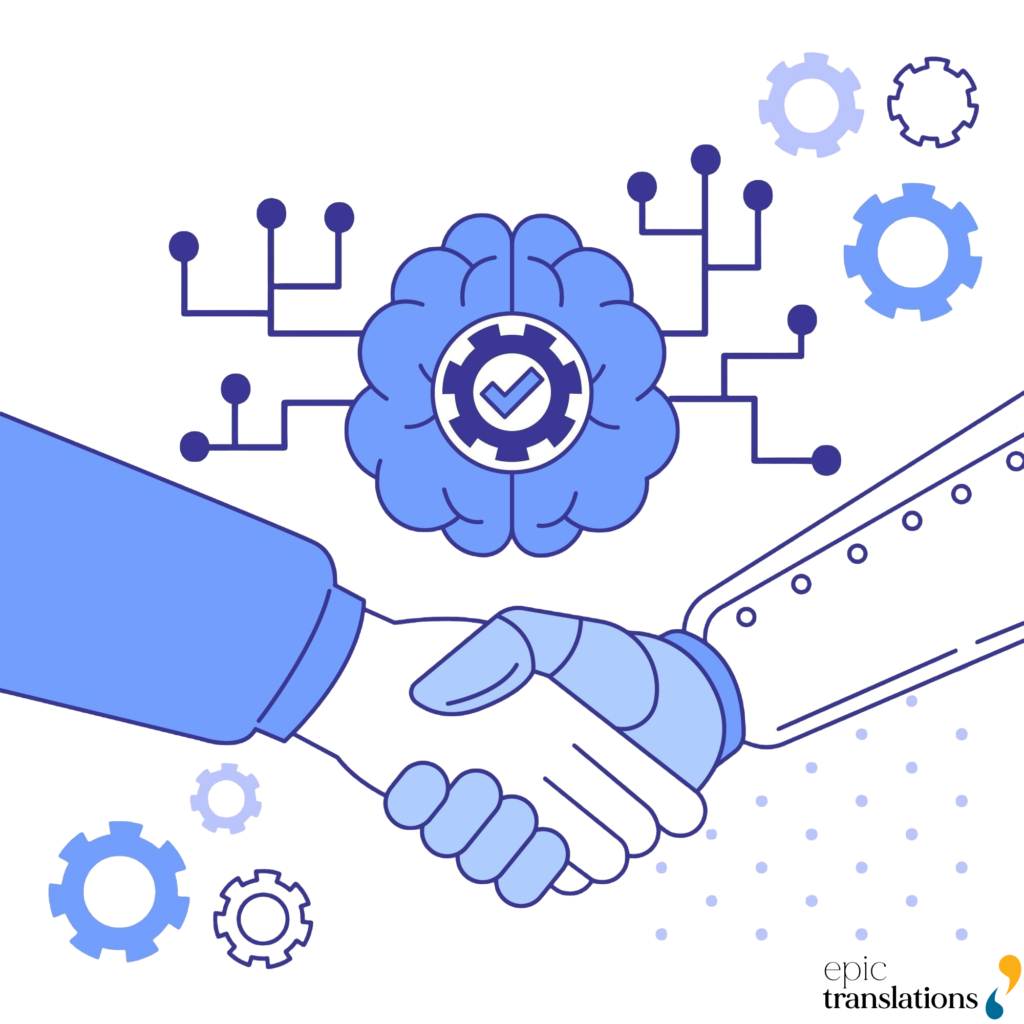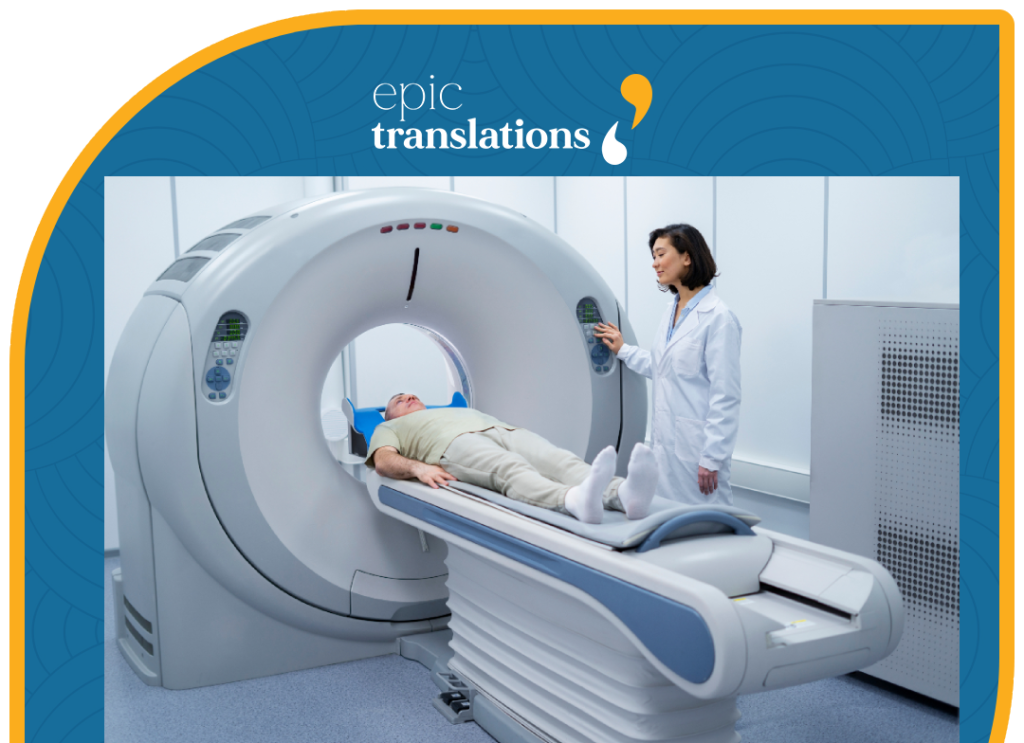
The allure of artificial intelligence (AI) in translations is undeniable. Promises of speed, accuracy, and cost-efficiency often drive companies and organizations to rely on AI tools for their translation needs. However, when it comes to translating technical and medical content, the limitations of these tools become glaringly evident. One real-world example from a medical journal translation illustrates why human expertise is indispensable in these fields.
A Case Study in AI Translation Gone Wrong
Recently, while translating an article from German to French for a medical journal, a glaring failure by DeepL Pro, a widely used AI translation tool, came to light. The article title contained the German term “Kinderärztliche Versorgung,” which, in English, translates to “paediatric coverage.” This term is crucial for discussing the provision of healthcare services for children.
DeepL Pro’s output for this term? “The food supply in paediatricians.”
This mistranslation highlights a fundamental issue with AI tools: the inability to comprehend context. The German word “Versorgung” has multiple meanings, including “supply,” “provision,” “procurement,” “feeding,” “coverage,” and “services.” In this instance, the tool chose “food supply,” a completely nonsensical choice in the context of a medical journal discussing paediatric care.
Now, imagine the consequences if the client had relied solely on this AI-generated translation. The article, printed and distributed to hundreds of medical professionals, would have included a title that was not only incorrect but also absurd. Such an error would severely damage the credibility of the medical journal, tarnishing its reputation among its audience of doctors and clinicians.
Why AI Struggles with Technical and Medical Translations
This example underscores the inherent challenges AI tools face with technical and medical content:
- Lack of Contextual Understanding: AI tools, while advanced, rely on patterns and algorithms rather than true comprehension. Words like “Versorgung”, which have multiple meanings, require a nuanced understanding of context that AI cannot provide.
- Inability to Capture Industry-Specific Terminology: Medical and technical fields often use highly specialized terminology. AI tools may misinterpret or incorrectly translate such terms, leading to inaccuracies that can have serious implications in these fields.
- Cultural Nuances: Language is deeply rooted in culture, and medical or technical content often involves cultural considerations. AI tools lack the ability to navigate these subtleties, which can result in translations that are inappropriate or even offensive in the target language.
- Risk of Literal Translations: AI often defaults to literal translations, as demonstrated in the “food supply in paediatricians” error. In technical and medical contexts, literal translations can lead to confusion, misinterpretation, or outright misinformation.
The Value of Human Expertise
Professional human translators bring critical skills and knowledge that AI simply cannot replicate. Here’s why their expertise is indispensable for technical and medical translations:
- Contextual Precision: Human translators understand the broader context of the text, ensuring that the correct meaning of ambiguous terms is conveyed accurately.
- Industry Knowledge: Professional translators specializing in medical and technical fields have the necessary background to interpret complex terminology and ensure its proper usage in the target language.
- Quality Assurance: Translators do more than just translate words; they ensure the final product is polished, culturally appropriate, and tailored to the target audience.
- Credibility Preservation: Errors like those made by AI tools can damage the credibility of an organization. Human translators protect your reputation by delivering accurate and professional translations.
Why Blindly Trusting AI Translation is Risky

Despite their limitations, many companies continue to trust AI translation tools like DeepL Pro, ChatGPT, and Claude for their translation needs. They often input text into these tools and use the output without reviewing it or consulting a language professional. This approach is risky, especially for high-stakes content like technical and medical documents.
Translation service providers, on the other hand, combine years of experience with the ability to leverage AI as a supporting tool rather than a standalone solution. They understand the capabilities and limitations of AI tools and ensure that the final result meets professional standards.
AI Translation Hub is a cutting-edge platform based on ChatGPT that leverages advanced artificial intelligence to deliver fast and efficient translations across various industries. Designed for businesses seeking scalable solutions, it combines the power of AI with user-friendly tools to streamline multilingual communication. While ideal for general content, it also highlights the importance of pairing AI with human expertise for complex translations, such as technical or medical materials, ensuring accuracy and cultural relevance.
Conclusion: Trust Human Expertise
The “food supply in paediatricians” mistranslation by DeepL Pro is not just an amusing anecdote; it’s a cautionary tale about the risks of relying on AI for critical translations. When accuracy and credibility are on the line, as they are in medical and technical fields, the value of human expertise cannot be overstated.
So, the next time you have a document to translate, don’t blindly trust AI translation tools. Instead, trust a professional human translation service provider to ensure your content is accurate, culturally sensitive, and professionally polished.
Break Language Barriers Effortlessly with EPIC Translations
With over 20,000 vetted and experienced translators, proprietary AI powered translation system, and our proprietary project coordination system, we make seamless communication with your multilingual stakeholders a reality. Whether it’s onsite / video interpreting, translating product manuals, company newsletters, app or website content, or legal documents, our professional translation services deliver unmatched accuracy and cultural relevance—economically and efficiently.
Ready to take your multilingual communications to the next level? Partner with EPIC Translations and experience how our cutting-edge translation services can amplify your message.